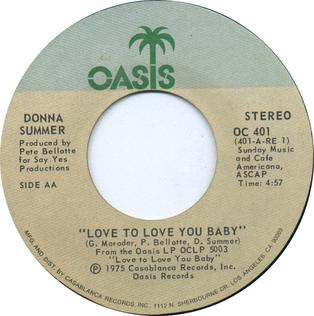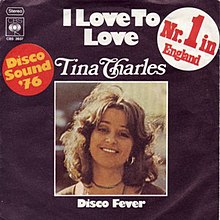
"Dancing Queen" is a song by the Swedish group ABBA, released as the lead single from their fourth studio album, Arrival (1976). It was written by Benny Andersson, Björn Ulvaeus and Stig Anderson. Andersson and Ulvaeus also produced the song. "Dancing Queen" was released as a single in Sweden in August 1976, followed by a UK release and the rest of Europe. It was a worldwide hit. It became ABBA's only number one hit in the United States, and topped the charts in Australia, Canada, Denmark, the Netherlands, Belgium, Czechoslovakia, Ireland, Mexico, New Zealand, Portugal, Norway, South Africa, Spain, Sweden, the United Kingdom, West Germany and the Soviet Union. "Dancing Queen" also reached the top five in many other countries.

"Walk This Way" is a song by the American rock band Aerosmith. Written by Steven Tyler and Joe Perry, the song was originally released as the second single from the album Toys in the Attic (1975). It peaked at number 10 on the Billboard Hot 100 in early 1977, part of a string of successful hit singles for the band in the 1970s. In addition to being one of the songs that helped break Aerosmith into the mainstream in the 1970s, it also helped revitalize their career in the 1980s when it was covered by hip hop group Run-D.M.C. on their 1986 album Raising Hell. This cover was a touchstone for the new musical subgenre of rap rock, or the melding of rock and hip hop. It became an international hit, reaching number 4 on the Billboard charts, and won both groups a Soul Train Music Award for Best Rap Single in 1987 Soul Train Music Awards. Both versions are in the Grammy Hall of Fame.

The Trammps are an American disco and soul band, who were based in Philadelphia and were one of the first disco bands.
The Three Degrees are an African-American female vocal group formed circa 1963 in Philadelphia, Pennsylvania. Although 16 women have been members over the years, the group has always been a trio. The group were particularly successful in the UK, achieving 13 Top 50 hit singles between 1974 and 1985.
Tina Charles is an English singer who achieved success as a disco artist in the mid to late 1970s. Her most successful single was the UK no. 1 hit "I Love to Love " in 1976.

"Kung Fu Fighting" is a disco song by Jamaican vocalist Carl Douglas, written by Douglas and produced by British-Indian musician Biddu. It was released in 1974 as the first single from his debut album, Kung Fu Fighting and Other Great Love Songs (1974), on the cusp of a chopsocky film craze and rose to the top of the British, Australian, Canadian, and American charts, in addition to reaching the top of the Soul Singles chart. It received a Gold certification from the RIAA in 1974 and popularized disco music. It eventually went on to sell eleven million records worldwide, making it one of the best-selling singles of all time. The song uses the Oriental riff, a short musical phrase that is used to signify Chinese culture.
Kelly Marie is a Scottish singer, best known for the song "Feels Like I'm in Love", a No. 1 hit in the UK in 1980.

"I Feel Love" is a song by the American singer Donna Summer. Produced and co-written by Giorgio Moroder and Pete Bellotte, it was recorded for Summer's fifth studio album, I Remember Yesterday (1977). The album concept was to have each track evoke a different musical decade; for "I Feel Love", the team aimed to create a futuristic mood, employing a Moog synthesizer.
Biddu Appaiah is a British-Indian singer-songwriter, composer, and music producer who composed and produced many worldwide hit records during a career spanning five decades. Considered one of the pioneers of disco, Euro disco, and Indian pop, he has sold millions of records worldwide, and has received an Ivor Novello award for his work. He has been ranked at number 34 on NME's "The 50 Greatest Producers Ever" list.
"If I Can't Have You" is a disco song written by the Bee Gees in 1977. The song initially appeared on the Saturday Night Fever soundtrack in a version by Yvonne Elliman, released in November 1977. The Bee Gees' own version appeared a month later as the B-side of "Stayin' Alive".

"Disco Inferno" is a song by American disco band the Trammps from their 1976 studio album of same name. With two other cuts by the group, it reached No. 1 on the US Billboard Dance Club Songs chart in early 1977, but had limited mainstream success until 1978, after being included on the soundtrack to the 1977 film Saturday Night Fever, when a re-release hit number eleven on the Billboard Hot 100 chart.

"Love to Love You Baby" is a song by American singer Donna Summer from her second studio album (1975). Produced by Pete Bellotte, and written by Italian musician Giorgio Moroder, Summer, and Bellotte, the song was first released as a single in the Netherlands in June 1975 as "Love to Love You" and then released worldwide in November 1975 as "Love to Love You Baby". It became one of the first disco hits to be released in an extended form.

"I Can't Stand the Rain" is a song originally recorded by Ann Peebles in 1973, and written by Peebles, Don Bryant, and Bernard "Bernie" Miller. Other notable versions were later recorded by Eruption, Graham Central Station, Tina Turner and Lowell George. The original version is ranked at 197 on Rolling Stone's 500 Greatest Songs of All Time.

Disco Deewane is a 1981 Pakistani pop album released by the Pakistani singing duo, Nazia and Zoheb, comprising Nazia Hassan and Zoheb Hassan, sister and brother respectively. The music was composed by Indian-British music director Biddu, and Zoheb Hassan, who also produced it under the label of HMV India/Saregama.
Polly Brown is an English singer from Birmingham. A member of Pickettywitch and Sweet Dreams - and with each group lead singer on a Top Ten hit, respectively "That Same Old Feeling" and "Honey Honey" - Brown had an international solo hit in 1975 with "Up in a Puff of Smoke".
Lee Vanderbilt was a Trinidadian soul and rock singer.
British soul, Brit soul, or the British soul invasion, is soul music performed by British artists. Soul has been a major influence on British popular music since the 1960s, and American soul was extremely popular among some youth subcultures, such as mods, skinheads, and the Northern soul movement. In the 1970s, soul gained more mainstream popularity in the UK during the disco era.

Graham Hamilton Lyle is a Scottish singer-songwriter, guitarist and producer.
Gerald Roland Shury was a British songwriter, arranger, and record producer who worked in the late 1960s and 1970s.

"I'll Go Where Your Music Takes Me" is a pop song written in 1976 by Biddu. The track appeared twice in the Top 30 of the UK Singles Chart; firstly when recorded by Jimmy James and the Vagabonds in 1976, and then in 1978, when it was covered by Tina Charles. In both instances, the recordings were produced by Biddu.











